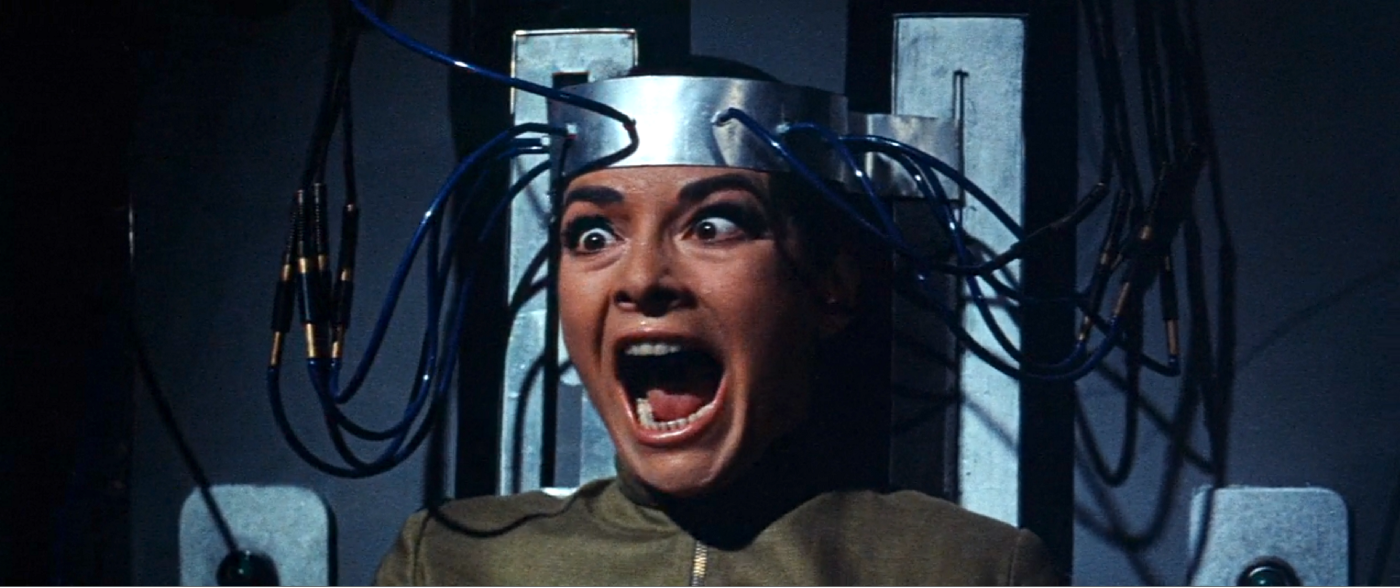
The first two-thirds of Dariush Mehrjui’s film Gaav (The Cow) feel’s like a biblical parable. It is not predictable, but it feels like it’s going to be. Everything is stable and clear. You can see the elements being put into place and the consequences hanging just out of sight, but the film never quite goes where you expect it will. It seems like an old testament story but then blossoms into something far more sophisticated and modern.
One of the differences between the Old and New Testament is their awareness of psychology. The books that make up the old testament are ancient. They date all the way back to the bronze age and perhaps further. They come from a time where psychology, internal conflict, and mental states were not well understood. The old testament concerns itself primarily with external behavior, actions. You are a good and pious person if you behave in accordance with God’s laws.
There is a mind-boggling array of laws to follow but few if any are concerned with how you think or feel. The New Testament, on the other hand, opens the door to the internal world of the mind. Jesus’s famous Sermon on the Mount is basically an updating of the ten commandments so that the laws transform from edicts about behavior to edicts about controlling one’s mind and emotions. It is not enough to refrain from adultery, you must never think of it. Jesus explicitly says thinking about it is equivalent to doing it.
The Iranian culture and the parables of The Koran cover the same territory. They describe the same descendants of Abraham. As a slightly more modern book than its two predecessors, it blends concerns for both psychology and outward behavior. In the end, all three books are more similar than different. All the Abrahamic religions provide their followers with allegories centered around an all-powerful God that meets out absolute justice.
Fortunately, although Gaav is rooted in these primitive books, Gaav transcends them and develops into a modern narrative with social, political, and psychological layers. Gaav is rich and complex in a way that older conceptions of humanity were unable to formulate.
Gaav is concerned with the individual’s place in society and how it plays into our identity. Hassan is the only man in the village with a cow. This is a position of prestige. He is respected by the other villagers. This is in contrast to someone like Saffar’s mentally disabled brother who the town bullies and laughs at. His role is to be the outcast, the abnormal one that makes everyone else feel normal.

Everyone has a label and a function. There is the chief, the sheepherder, the thief, and more. Each internalizes their role and uses it as an identity. They see what their tribe sees. In the last third of the film Hassan, the man with the cow, loses his source of identity. His cow dies and her absence removes Hassan’s purpose in the village. His purpose in life.
Faced with a tragedy he can not endure he adopts the identity of the cow. It is strangely reminiscent of Roman Polanski’s The Tenant. Both protagonists become what their surroundings require of them. Both men lose the integrity of their identity. Their boundaries are breached leaving them at the mercy of their surroundings. Polanski’s Trelkovsky is transformed into a tragic and suicidal woman. Mehrjui’s Hassan is transformed into a tragic and suicidal cow. Both become sacrifices to something they do not understand. In the end, villagers beat Hassan like a cow, call him a beast, and even begin the same cycle of lies that the real cow’s death initiated.
Like The Tennant, Gaav transforms into a horror movie. Our sweet protagonist is demented and destroyed. Unlike The Tennant, the villagers who surround Hassan are not vindictive or malicious. There is no truly malignant force in Gaav. If the film is seen through a political lens there are many issues pertaining to deception, exile, and leadership, but even then it is difficult to pin down a single culprit.
The tragedy results from the circumstances in which they all live. Hassan’s cow dies which robs him of his purpose. The villagers recognize this and the film comes full circle to the opening scene where Hassan suffers the same fate as Saffar’s misfit brother who is tortured and rejected.

If you enjoyed this article click here for more
www.filmofileshideout.com/archives/samira-makhmalbafs-the-two-legged-horse


